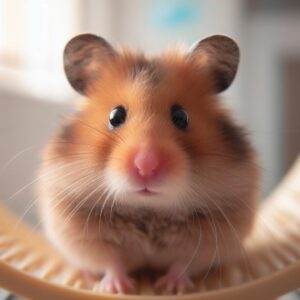A Ferret, this delightful and inquisitive creature, has become increasingly popular as an exotic pet. They bring charm and endless curiosity to any home. Delving into their history, ferrets were domesticated thousands of years ago for hunting purposes, their keen senses making them exceptional hunters and beloved companions.
Choosing the Right Ferret
Understanding Ferret Breeds
Ferrets come in a variety of breeds, each with its own unique characteristics. Some have sleek coats, while others boast fluffy fur. Understanding these differences can help you choose a ferret that fits seamlessly into your family.
Considerations for Adopting or Purchasing a Ferret
Adopting from shelters or rescues not only provides a loving home for a ferret in need but also ensures you are giving a home to a pet with a known history. If you decide to purchase, seek reputable breeders who prioritize the well-being and health of their animals.
Health Checks and Signs of a Healthy Ferret
Before bringing your ferret home, ensure it has received proper vaccinations and health check-ups. A healthy ferret is alert, has bright eyes, a shiny coat, and is curious about its surroundings.
Setting Up the Perfect Ferret Home
Selecting an Appropriate Ferret Cage
Choose a spacious and well-ventilated cage that allows your ferret to move freely. Multi-level ferret cages with ramps and platforms are excellent choices, providing both exercise and entertainment.
Bedding, Toys, and Enrichment for Ferrets
Soft bedding and a variety of toys, such as tunnels, balls, and chew toys, keep ferrets mentally stimulated and physically active. Enrichment activities, like puzzle feeders, prevent boredom and encourage natural behaviors.
Temperature and Lighting Requirements
Ferrets thrive in temperatures between 60-70°F (15-21°C). Ensure their living space is warm and draft-free. Providing natural light, even through windows, helps regulate their internal clock and promotes healthy sleep patterns.
Feeding and Nutrition
Ferret-Specific Diets: Kibble vs. Raw Diet
High-quality ferret kibble, rich in protein and low in carbohydrates, is a convenient and balanced option. Some ferret owners prefer a raw diet, consisting of raw meat and bones. Whichever diet you choose, ensure it meets their nutritional needs.
Importance of High-Quality Protein in Ferret Diets
Ferrets are obligate carnivores, meaning they need a diet primarily consisting of meat. Look for ferret food with real meat as the first ingredient, avoiding fillers like corn or wheat, which provide little nutritional value.
Safe and Unsafe Foods for Ferrets
Safe foods include meat, eggs, and some fruits and vegetables. Avoid foods high in sugars, dairy products, and anything containing caffeine or chocolate, as these can be harmful to your ferret.
Hygiene and Grooming
Bathing and Cleaning Ferrets
Ferrets are naturally clean animals and don’t require frequent bathing. A bath every few months with a ferret-specific shampoo is usually sufficient. Regularly clean their living environment to prevent odors and bacteria buildup.
Nail Trimming and Dental Care
Trim your ferret’s nails regularly to prevent overgrowth. Dental health is vital; provide dental treats and toys to help keep their teeth clean and prevent dental issues.
Preventing and Treating Fleas and Ticks
Regularly check your ferret for signs of fleas or ticks. Consult your veterinarian for safe and effective flea prevention methods suitable for ferrets.
Socializing and Bonding
Understanding Ferret Behavior
Ferrets are social animals that enjoy the company of their kind. They also form h2 bonds with their human family members. Understanding their playful and curious nature helps in providing suitable interactions.
Introducing Ferrets to Each Other
If you have multiple ferrets, introduce them gradually and in a neutral space. Supervise their interactions initially to ensure they get along well.
Interacting and Playing with Ferrets
Ferrets love to play, whether it’s chasing a ball, exploring tunnels, or engaging in interactive games with their owners. Spend quality time with your ferret, providing mental and physical stimulation.
Training Your Ferret
Basic Training Commands: Sit, Stay, and Come
Ferrets can learn basic commands through positive reinforcement. Use treats and praise to encourage desired behaviors. Keep training sessions short and fun to maintain their interest.
Litter Training Techniques
Ferrets are naturally inclined to use a litter box. Place multiple litter boxes in their cage and around your home. Use a ferret-friendly, dust-free litter to encourage consistent use.
Positive Reinforcement and Reward-Based Training
Positive reinforcement, such as treats and praise, reinforces good behavior. Reward-based training builds trust and strengthens your bond with your ferret.
Health Care and Common Health Issues
Regular Vet Check-ups and Vaccinations
Schedule regular veterinary check-ups to monitor your ferret’s health. Vaccinations are essential to protect them from common diseases like canine distemper and rabies.
Common Health Problems in Ferrets (Respiratory Issues, Insulinoma, etc.)
Ferrets are prone to respiratory infections and insulinoma, a pancreatic tumor. Regular vet visits and a healthy diet can help prevent these issues. Be vigilant for signs of illness, such as coughing, lethargy, or difficulty breathing.
Recognizing Signs of Illness and Emergency First Aid
Knowing the signs of illness, such as loss of appetite or changes in behavior, is crucial. Have a ferret-specific first aid kit on hand and know basic first aid procedures, but always seek professional veterinary care for serious issues.
Ferret-Proofing Your Home
Identifying and Eliminating Hazards
Ferrets are curious and can find their way into small spaces. Ferret-proof your home by securing cabinets, blocking access to tight spaces, and removing hazardous items like electrical cords.
Securing Small Spaces and Hiding Spots
Seal small openings or gaps where ferrets could squeeze through. Ferrets love to hide, so be aware of potential hiding spots, such as under furniture or in piles of laundry.
Electrical and Household Safety Measures
Ferrets often chew on objects, including electrical cords. Use cord protectors and supervise their playtime to prevent accidents. Be mindful of toxic plants and secure heavy furniture to prevent tipping.
Breeding and Reproduction
Responsible Breeding Practices
Breeding ferrets requires extensive knowledge and commitment to the welfare of both the parent ferrets and the kits. Responsible breeding aims to improve the ferret’s health and temperament.
Pregnancy and Birth in Ferrets
Pregnant ferrets, known as jills, need a quiet, stress-free environment. Provide a comfortable nesting box and monitor the birth process. Seek veterinary assistance if complications arise.
Caring for Mother and Kits
Newborn kits are delicate and depend on their mother’s milk for nutrition. Provide a balanced diet for the mother, ensuring she has a quiet space to care for her young. Monitor the kits’ growth and health closely.
Traveling with Ferrets
Travel Safety Measures and Carriers
When traveling with ferrets, use secure carriers specifically designed for them. Ensure the carrier is well-ventilated and comfortable. Place familiar bedding and toys inside to reduce stress.
Ensuring Comfort and Security during Travel
During travel, maintain a stable temperature, and minimize noise and sudden movements. Offer water and occasional treats to keep your ferret calm and hydrated.
Adapting Ferrets to New Environments
Ferrets can be sensitive to changes in their environment. When introducing them to a new place, gradually allow them to explore under supervision. Provide familiar items, like their bedding or toys, to create a sense of security.
Legal and Ethical Considerations
Understanding Local Laws and Regulations
Check local laws regarding ferret ownership, as regulations vary by region. Some areas require permits or have restrictions on keeping ferrets as pets.
Ethical Considerations in Ferret Ownership
Ethical ownership involves providing a high quality of life for your ferret, meeting their physical and emotional needs. It also includes not supporting illegal breeding or the exotic pet trade.
Joining Ferret Enthusiast Communities and Resources
Connect with ferret enthusiast communities, both online and locally. These communities provide valuable support, advice, and resources for ferret owners.
Dealing with Behavioral Issues
Addressing Aggression and Biting
Ferrets may exhibit aggression due to fear, stress, or improper socialization. Patiently work with them, using positive reinforcement techniques. Consult a ferret behaviorist if needed.
Handling Fear and Anxiety in Ferrets
Changes in their environment or routine can cause fear and anxiety in ferrets. Provide a secure space and gentle reassurance. Avoid sudden movements and loud noises, which can exacerbate their stress.
Seeking Professional Behaviorist Help
If behavioral issues persist, seek help from a professional pet behaviorist. They can assess the situation and provide tailored strategies to address specific problems.
End-of-Life Care and Bereavement
Palliative Care for Elderly Ferrets
As ferrets age, they may develop health issues. Provide comfort, warmth, and easy access to food and water. Regular vet check-ups help manage pain and ensure a good quality of life.
Euthanasia: Considerations and Support
Making the decision for euthanasia is never easy. Consult your veterinarian for guidance. They can assess your ferret’s quality of life and provide compassionate support during this difficult time.
Coping with the Loss of a Ferret
Losing a beloved ferret is a profound loss. Reach out to support groups or friends who understand the unique bond between ferret owners and their pets. Remember the joy and love your ferret brought into your life.
Conclusion
In conclusion, owning a ferret is a rewarding experience that requires dedication, patience, and love. By understanding their unique needs and providing a safe, enriching environment, you can ensure your pet leads a happy and healthy life. Remember, the bond you share with your ferret is a special one, built on trust, companionship, and the joy of unconditional love.






